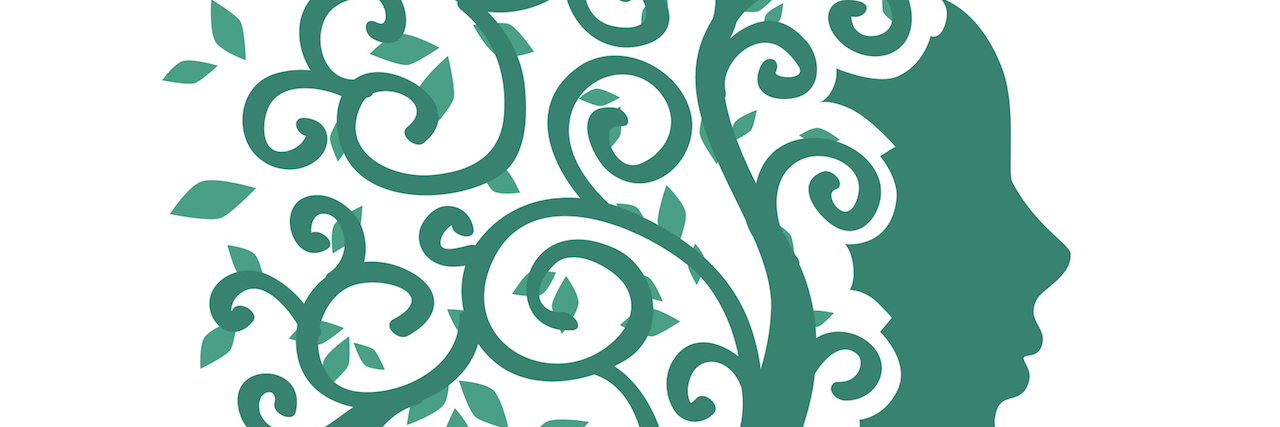Having a mental illness is an unimaginably lonely journey, so shouldn’t receiving a diagnosis be an immense relief? Suddenly you’re not alone; there are reasons for your often frightening thoughts and behavior, and medical interventions can help to ease both symptoms and struggling.
If only it was that straightforward. An accurate diagnosis is often hard to obtain and can bring many new challenges. Like most health problems, mental illness is easier to treat if diagnosed early, but Australian research shows that 54 per cent of people with mental illness fail to access any treatment. The proportion of people with mental illness receiving treatment is half that of people with physical disorders.
The onset of psychiatric disorders usually occurs in childhood or adolescence, but treatment typically doesn’t commence until years later. Adolescence is a time of impulsive and emotional behavior, so symptoms are often negated or ignored when they first present.
Sometimes patients remain in denial, so they can enjoy the rush of a manic episode or protect the secret comfort of an eating disorder. Depressive illnesses are often accompanied by apathy, and having the motivation to seek help can seem impossible.
In other cases, people with early symptoms are reluctant to seek help because they don’t understand what their symptoms mean, or they associate mental illness with negative and inaccurate stereotypes.
***
Even when a person seeks help, obtaining an accurate diagnosis can be difficult. In the absence of physical symptoms, clinicians have to rely on the patient to provide reliable information, and this isn’t always forthcoming. Psychosis can produce disorganized thoughts and poor communication skills, and information may legitimately be forgotten because of anxiety, difficulty concentrating or poor memory. Information is sometimes omitted because the person feels shame or is fearful of treatment, and people with personality disorders can confuse a diagnosis by attempting to manipulate the doctor.
It takes a skilled clinician to navigate these obstacles. Often, the first point of contact is with a general practitioner, and studies have shown that the communication style of GPs has a significant impact on their ability to recognize and manage mental disorders. The accuracy of identifying a psychiatric illness increases significantly after training, but many GPs have neither the time nor the training to make an accurate diagnosis.
Increasingly, people are questioning the inherent value in diagnosis. Over recent times, there has been increasing debate amongst the academic community as to the value of the DSM-5, the authoritative volume that defines and classifies mental disorders to improve diagnoses, treatment and research.
A study by the University of Liverpool concluded that psychiatric diagnoses are scientifically worthless as tools to identify discrete mental health disorders such as schizophrenia, bipolar disorder, depressive disorders, anxiety disorders and trauma-related disorders. Analyzing chapters for these categories in DSM-5, the authors concluded that the manual’s rules are inconsistent and subjective. The main findings of the research were:
- Psychiatric diagnoses all use different decision-making rules
- There is a huge amount of overlap in symptoms between diagnoses
- Almost all diagnoses mask the role of trauma and adverse events
- Diagnoses tell us little about the individual patient and what treatment they need.
The lead researcher at the University of Liverpool, Dr Kate Allsopp, said: “Although diagnostic labels create the illusion of an explanation they are scientifically meaningless and can create stigma and prejudice. I hope these findings will encourage mental health professionals to think beyond diagnoses and consider other explanations of mental distress, such as trauma and other adverse life experiences.”
***
A major reason people are reluctant to seek help for their emotional distress is the stigma attached to mental illness. Mental health is improved by feeling accepted, being active and engaged, and living a life where you contribute to the community. The stigma associated with mental illness can erode a person’s self-confidence and lead to a life of isolation, discrimination, fear and ridicule.
A study by the Mental Health Council of Australia (MHCA), found 85 percent of Australians with a mental illness surveyed were worried other people would view them unfavorably because of their mental illness. The study revealed that 71 per cent of people with a mental illness had been treated as less competent after revealing it to others. Just over half were advised to “lower their expectations” because of their mental illness.
Similarly, a 2013 international study, ‘The Backbone of Stigma,” found 58 per cent of people surveyed believed someone with schizophrenia shouldn’t supervise employees at work. Forty-three percent of respondents said they would not want to work closely with a colleague who had schizophrenia. Not only do people face prejudice based on inaccurate stereotypes about mental illness, but also they carry the burden of self-stigma.
Erving Goffman was a sociologist who studied the impact of institutionalization on people with a mental illness. He described self-stigma as, “internalized feelings of guilt, shame, inferiority and wish for secrecy experienced by those who live with mental illness.”
Self-stigma affects self-image and self-efficacy, making it harder for people with a mental illness to have things that most of society takes for granted; a good job, safe housing, adequate health care and interaction with a diverse group of people.
***
Despite all the challenges and negative aspects of obtaining a psychiatric diagnosis, why do I argue that it’s still important to seek help? Because the majority of people who undergo a diagnostic process with competent and well-trained mental health professionals have a greater potential for a positive outcome than those who are left to manage symptoms unsupported.
Not only does a diagnosis lead to treatment, but it can help people better understand their condition and how to lessen their symptoms’ negative impact on their lives.
There was a time when the majority of people with a severe mental illness faced a life of institutional care. Today, this is usually a last resort, and other medical options include psychotropic medications, psychotherapeutic techniques such as insight-oriented therapy and cognitive behavioral therapy, electroconvulsive therapy and transcranial magnetic stimulation.
While a separate discussion can be had about the efficacy of these options, undiagnosed people will continue to struggle under the weight of their symptoms, possibly leading to dangerous self-medicating, physical neglect, homelessness and suicide.
While medical treatment is sometimes still far from perfect, it can give people support and tools to improve their quality of life.
Another positive outcome of diagnosis is it allows people to become part of a community. For example, a primary symptom for people with Asperger’s syndrome is isolation. But as awareness of the condition has increased, people with this diagnosis understand that there’s an entire community who see the world in a similar way to them. They are not alone.
Mental illness will always be difficult: difficult for the person whose life is shaped by the condition, difficult for their family to manage challenging symptoms and difficult for the medical profession to treat. It is unlikely that there will ever be “one size fits all” solutions for such complex illnesses, but help is at hand, and so is hope.
Getty image by Biljana Cvetanovic


